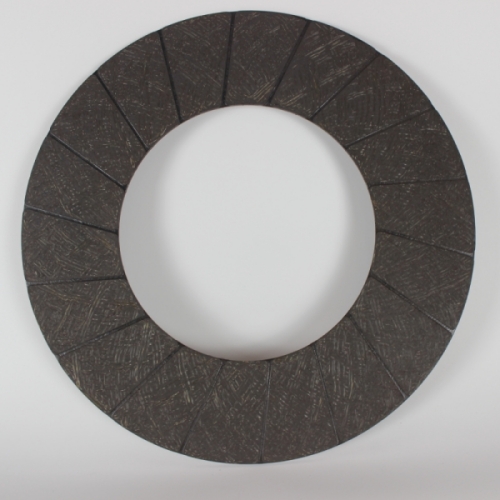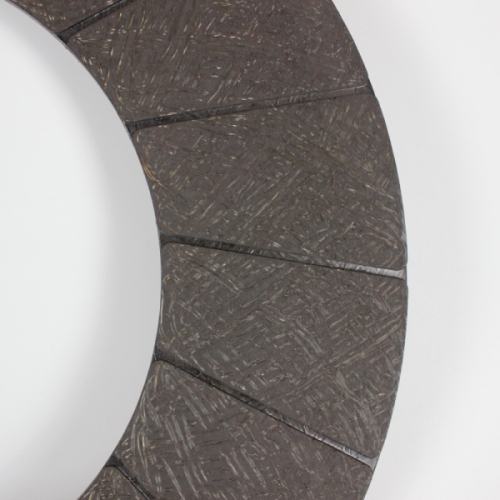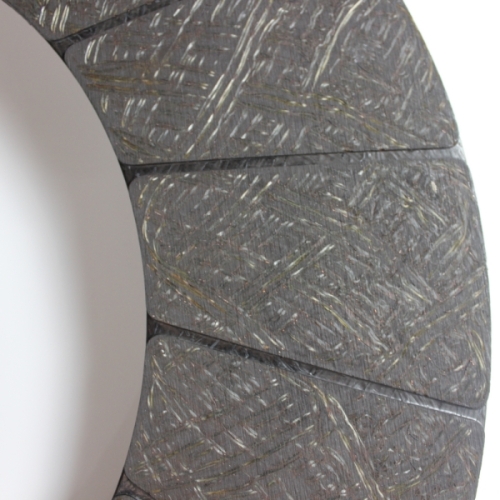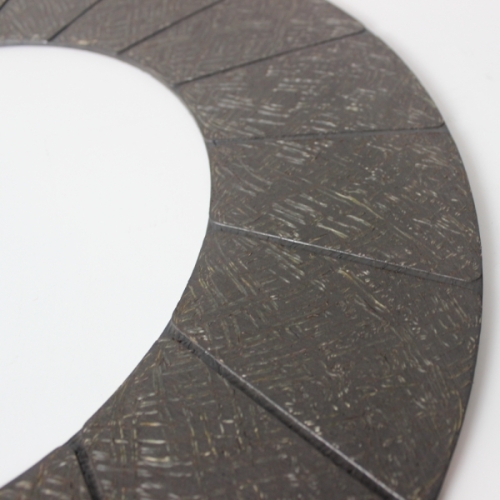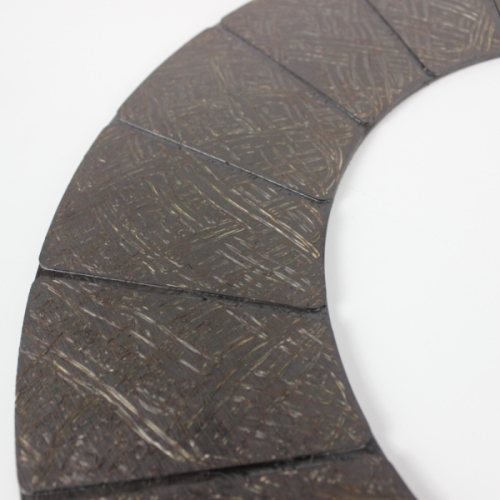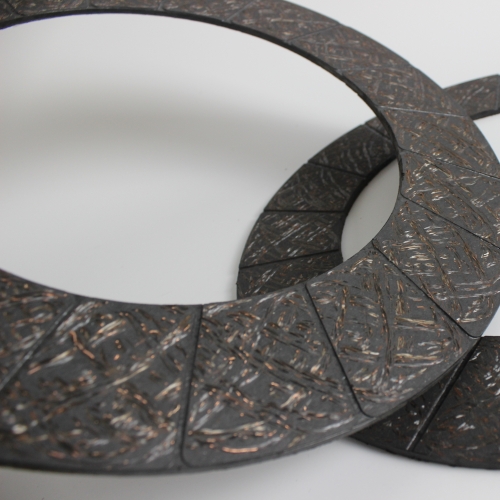Non-asbestos Material Clutch Facing
The clutch is an important component of the automobile's transmission system. It directly receives the power output from the engine, and then transmits it to the gearbox to reduce speed and increase torque, and then to the wheels. It has the functions of smooth engagement to ensure a smooth start of the car, temporary cutting off of power to ensure smooth operation during shifting, and preventing overloading of the transmission system. Its working principle is also very simple, it relies on the principle of friction to transmit engine power.
Product description
With good mechanical strength and physical properties, friction material products need to be drilled, riveted, assembled and other mechanical processing before being assembled and used to make a brake pad assembly or clutch assembly. During the friction work process, the friction material not only has to withstand high temperatures, but also withstands large pressure and shear forces. Therefore, friction materials are required to have mechanical strength to ensure that they will not be damaged or broken during processing or use. The clutch plate is also required to have sufficient impact strength, static bending strength, maximum strain value and rotational damage strength, in order to ensure that the clutch plate does not break under high-speed rotating working conditions. Our company uses good fiber materials as the base material, which gives the friction products sufficient mechanical strength so that they can withstand the load of grinding and riveting of the friction plates during the production process as well as the load due to braking and transmission during use. The impact force, shear force and pressure generated.
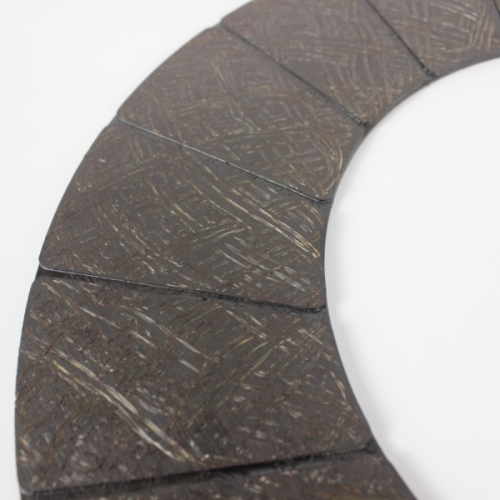
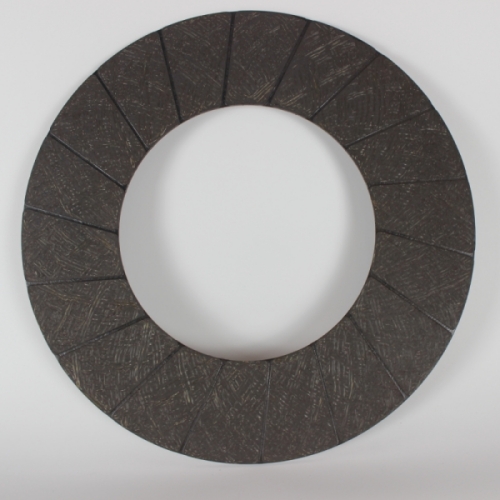
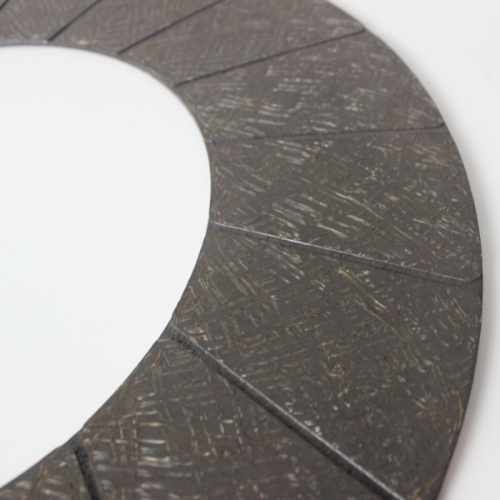
Packaging and shipping
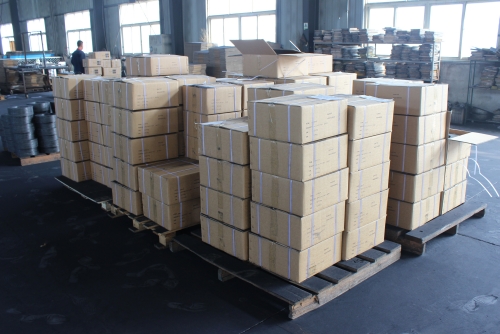
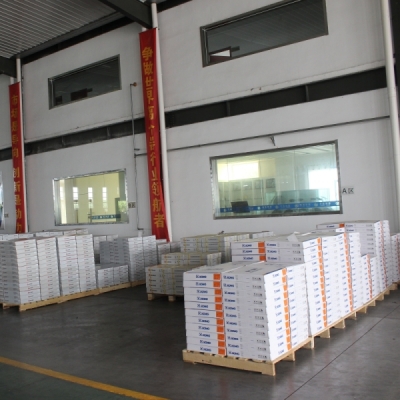
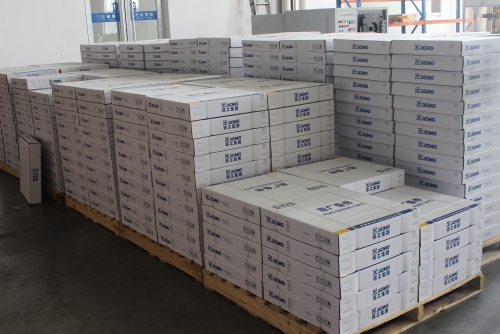
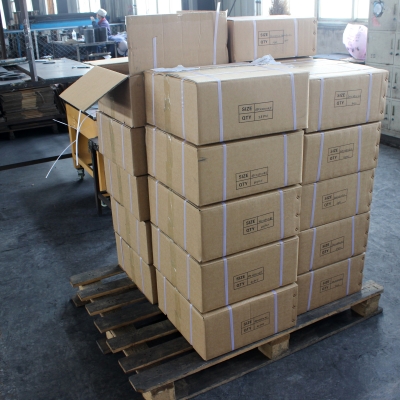
Product features
1. Enhanced friction characteristics: Non-asbestos clutch facings provide excellent friction characteristics, delivering stronger and more consistent engagement. They offer precise control during clutch operation and help to prevent slipping, resulting in improved power transmission and response.
2. Reduced noise and vibration: Non-asbestos inherent vibration-damping properties help minimize noise and vibration during clutch engagement, enhancing driving comfort.
3.Chemical resistance: Non-asbestos clutch facings exhibit good resistance to chemicals, oils, and other fluids commonly found in automotive and industrial environments.


